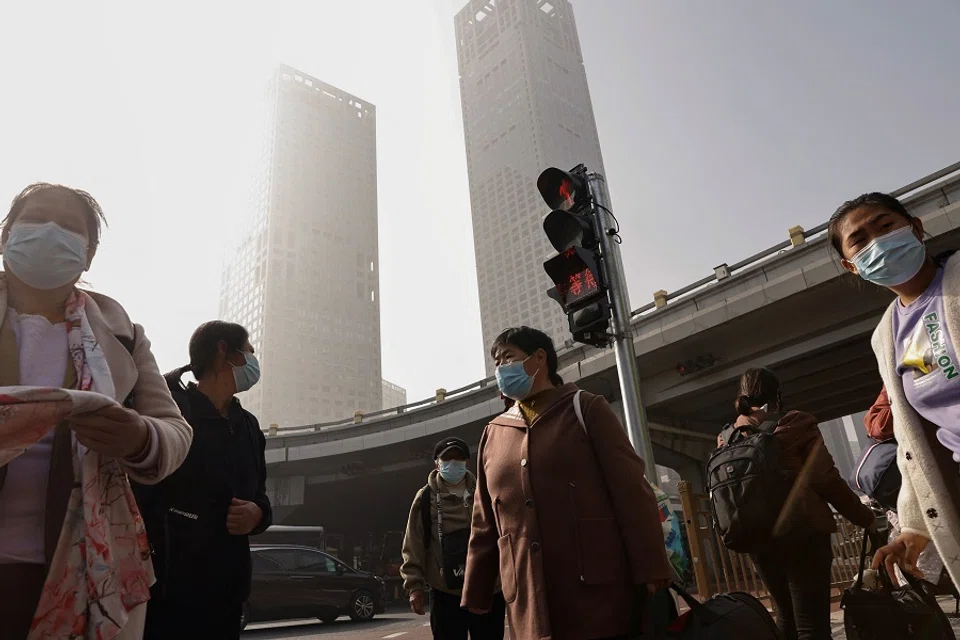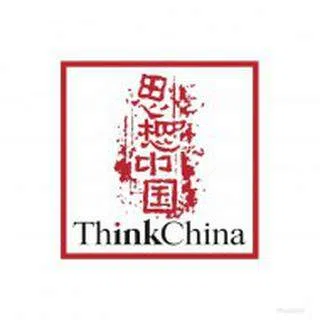The China factor behind several Indo-Pacific hotspots
US researcher Wei Da gives a threat assessment of potential hotspots in 2024, from the South China Sea to the Taiwan Strait, the Korean peninsula and the Ukraine war, with the China factor in mind.

Vladimir Lenin once famously said that imperialism is war. But this sentiment has become somewhat dated since the end of the Second World War.
Taking the Indo-Pacific region as an example, putting aside various border conflicts, the two major wars that occurred in the 20th century - the Korean War in the 1950s and the Vietnam War in earnest in the 1960s and 1970s - were not caused by imperialist aggression but rather a battle between the different ideologies of domestic political forces and over sovereignty. Thus, different ideologies can lead to war.
Peace among democracies
But the rise and development of modern civilisation in the post-war period has resulted in something unprecedented: virtually no wars had broken out between democracies.
This phenomenon, also known as "democracies do not go to war with other democracies", is disturbing to some non-democratic cultures and societies. Infuriated, they would disregard post-war records and dig out insignificant century-old events, citing cases of conflicts between Western countries in modern history to prove that democracies do go to war with each other.
It must be noted that the West is not synonymous with democracies, and modern civilisations only truly began to take shape after the end of the Second World War.

But in the 21st century today, it seems that someone from Lenin's hometown has decided to intervene because he is so worried that Lenin's famed quote would become outdated.
Under Russian President Vladimir Putin's leadership, Russia has not hesitated to take on the mantle of the tsar and the Soviet empire by brazenly invading the sovereign nation of Ukraine in February 2022, reaffirming that imperialism is war.
As for the fate of the Russia-Ukraine war, no matter how determined Putin and his followers are to battle to the death, akin to a trapped beast, their eventual downfall or perhaps collapse is inevitable. This is because the evolution of human civilisation is an irreversible upward process, and those who conspire against it will only face a bottomless abyss.
The law of philosophy dictates that countries advancing towards modern civilisation will continuously grow and strengthen.
Civilisation's upward progress
Post-war history has repeatedly proven that the development and order of modern civilisation have brought unprecedented advancement and prosperity to the Indo-Pacific region - from the rapid rise of Japan after the war and the "four Asian dragons", to the reform and opening up of China and the rise of India and Vietnam today.
Indeed, modern civilisation is far from perfect and still in the process of continuous development and improvement. But its overall development trend undoubtedly represents the progressive way and bright future of human civilisation.
Deng Xiaoping once said that the countries that had good relations with the US all became prosperous - he was speaking from experience. The law of philosophy dictates that countries advancing towards modern civilisation will continuously grow and strengthen.
Regrettably, however, after humanity's defeat of fascist aggression in the Second World War and dictatorship in the Cold War, some old ideologies and imperialist thinking are currently making a comeback and wanting to have their own way, to the point of making one last hurrah and inciting populism, national hatred and frequent nuclear threats in an attempt to reverse the progress of the world and civilisation.

This is the big picture of what the world will face in 2024, which also includes the severe challenges that the Indo-Pacific region may face.
Korean peninsula in 2024
International observers predict that the Korean peninsula will not be peaceful in 2024. The traditional survival philosophy of North Korea's Kim dynasty is to manoeuvre between major powers and eke out an existence within the crevices.
But in the second half of 2023, North Korean Supreme Leader Kim Jong-un already publicly chose sides, supplied Russia with arms to use in Ukraine, and even made the mindless assertion that it would not think twice about using nuclear weapons against South Korea, a country of common ethnicity.
In early October last year, Putin and Iran allegedly incited Hamas to attack Israel, in an attempt to distract the US and the West, and to take the pressure off Russia on the Russia-Ukraine battlefield. But now that Hamas appears to be falling apart amid Israel's hammering, Putin is perhaps hoping that Kim would stir up trouble to reduce the West's (including South Korea's) support for Ukraine.
... if Kim Jong-un dares to make a wrong move in 2024, the Korean peninsula and its people could be reborn from the ashes of war.

But just as Hamas encountered a strong retaliation from Israel, South Korea has also begun to push back against North Korea since the US-Japan-South Korea meeting at Camp David in the summer of 2023.
Both South Korea and the US have repeatedly stated that if North Korea were to cross the line, especially if nuclear weapons were used, the US-South Korean military coalition would completely eradicate the Kim dynasty. Such a declaration has indeed struck right at the heart of North Korea, because what a family dictatorship is most concerned with is its total monopoly of power over the nation - that is their lifeblood.
Back then, Empress Cixi first stirred anti-foreigner sentiments with the Boxer Rebellion, declaring war on the Eight-Nation Alliance, but subsequently made an about-face, ceded land, paid reparations to the foreign powers and stamped out the rebellion. Her true motive was always to guard the Qing territory held by Aisin Gioro.
History frightfully retains similarities; if Kim Jong-un dares to make a wrong move in 2024, the Korean peninsula and its people could be reborn from the ashes of war.
... these are all signs that the Chinese might not yet be prepared for a military takeover of Taiwan. Hence in 2024, the state of "cold peace" in the Taiwan Strait should persist.
'Cold peace' in the Taiwan Strait
As for the Taiwan Strait, constant attention from the international society, Taiwan's efforts to step up combat readiness and its resistance against "fifth column units", as well as the US and Japan heightening its military defence deployments, have instead contributed to the current tense situation - albeit one with a balance of power.
On top of that, the Chinese paramount leader had publicly stated in San Francisco in November 2023 that China has no plans to take military action on Taiwan in the near future. Coupled with the ever increasing pressure on China as a result of the declining economy, as well as the various cases of corruption and leaking of secrets from China's high-ranking military and rocket force officials, these are all signs that the Chinese might not yet be prepared for a military takeover of Taiwan. Hence in 2024, the state of "cold peace" in the Taiwan Strait should persist.

As for the South China Sea, Vietnam is constantly reclaiming land and carrying out island-building. China is keeping a low profile in response to this.
Meanwhile, the Philippines is David in its fight against Goliath - legally, it has the results of the 2016 international tribunal as its foundation; militarily, it has the support of the US and other Western nations; morally and in terms of market, it has the backing of ASEAN. Moreover, a democratically elected government cannot back down on issues of territorial land and waters.
The US and the West will continue to enter the South China Sea, citing the "right of freedom of navigation". In 2024, the various disputes and claims over the sovereignty of the South China Sea will persist. For China, the South China Sea issue has become a hot potato.
The best opportunity that China had to wrest back total control of the South China Sea was during the end of the Second World War. However, China was too preoccupied with a civil war on land at the time...
Valuing peace
Considering that the international practice in dealing with disputes over territorial land and waters is generally to give precedence to the nation in actual control, it would be increasingly difficult for the side that has lost control to regain it.
The best opportunity that China had to wrest back total control of the South China Sea was during the end of the Second World War. However, China was too preoccupied with a civil war on land at the time to be concerned about maritime matters.
If China had jumped on the South China Sea issue right after 1949, perhaps it would still not be too late. However, it was constantly dealing with domestic turmoil and a military that was too weak to deal with issues in the south of China. With the ushering in of reform and opening up, China's maritime awareness increased, but the golden window of opportunity to resolve the issue of sovereignty over the South China Sea had passed.
Now, faced with international laws and regulations of the seas as well as the international tribunal ruling against them, China's stance is uncharacteristically passive, and relying on wolf warrior diplomacy would accomplish nothing.
...at the core of it, it is still dependent on the collective efforts and workings of the countries in the region.

Looking at the state of security in the Indo-Pacific region for 2024, it is not hard to spot the relatively obvious China factor behind several hotspots. That is to say, as long as China does not take action haphazardly, the Indo-Pacific region will not sink into war and crisis.
As for the sabre-rattling and taunting by the likes of Kim Jong-un, it is but a storm in a teacup. Some say that the stability of the Indo-Pacific region is reliant on intervention from the US and other international powers, but I feel that at the core of it, it is still dependent on the collective efforts and workings of the countries in the region. Furthermore, China's important role cannot be dismissed.
After all, it is not in the best interests of the Indo-Pacific region - or the Chinese people - for the region to be mired in war. In the Year of the Dragon, the Chinese should value peace.



![[Photos] Fact versus fiction: The portrayal of WWII anti-Japanese martyrs in Taiwan](https://cassette.sphdigital.com.sg/image/thinkchina/3494f8bd481870f7c65b881fd21a3fd733f573f23232376e39c532a2c7593cbc)

